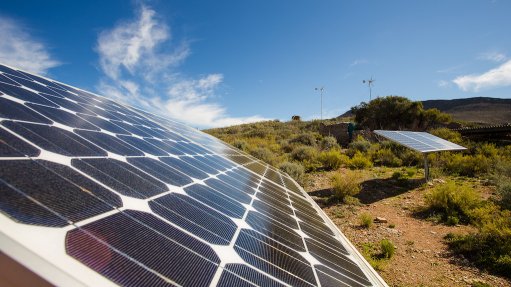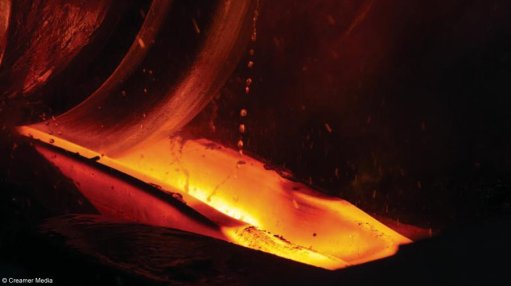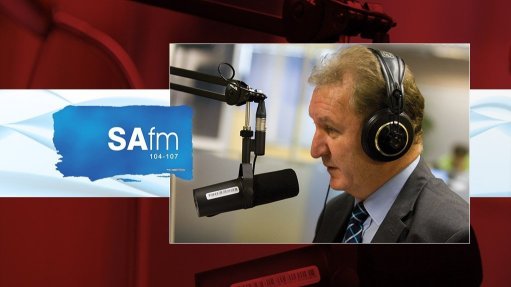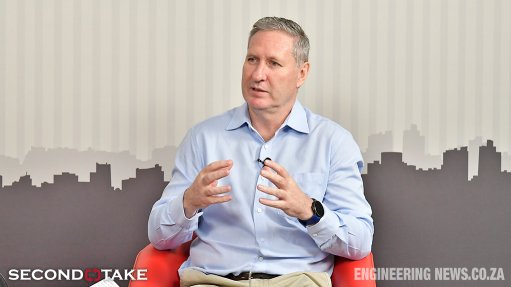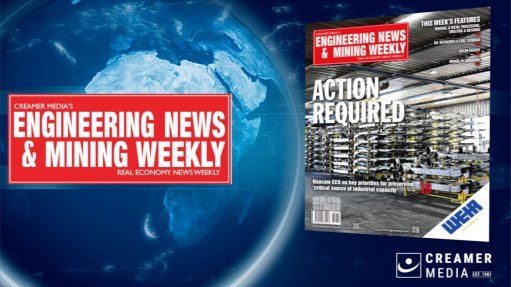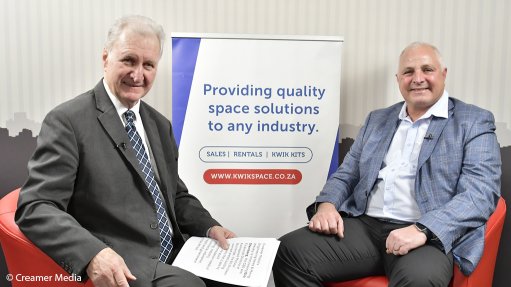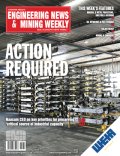Stainless Steel: The Cost Competitive Corrosion Efficient Solution
This article has been supplied.
Corrosion is the natural, gradual deterioration of metals reacting with their environment. It degrades the useful properties of metals and structures including their strength and structural integrity. In the ambient environment, most metal alloys tend to revert to their natural stable states. Carbon steels, for example, are made up of iron and a combination of other alloying elements. Without any additional surface protection, they tend to form a layer of rust (iron-oxide); which is brittle and exfoliates, exposing a new fresh layer of steel to be attacked. This cycle continues with devastating effects on equipment and structures due to resultant loss in through-thickness and inevitably causing perforation.
When choosing metals for longevity and low maintenance, stainless steels become the obvious choice. Stainless steels have a unique advantage in that a thin, tenacious, and self-repairing passive chromium oxide layer forms on the surface of the steel. This oxide layer gives the steel its characteristic corrosion-resisting properties in most environments. The steel must contain at least 10.5% chromium for this passive layer to form. Stainless steels are known for their superior corrosion resistance and are mainly used in the bare mill finish without the need for additional protective coating systems to enhance corrosion protection.
To understand corrosion protection, one has to understand the corrosion mechanism at play. Below is a summary of the key forms of corrosion and typical applications where the correct metal of choice can aid in saving costs and lives…
Atmospheric corrosion:
This is one of the most widespread causes of metallic degradation. It occurs as a reaction of a metal to its immediate environment. It is generally predictable and measurable and therefore can be designed into a structure by adding a thickness factor. Examples of successful use of stainless steel in a corrosive environment are the Railway Electrification Masts in Gqeberha; the line runs from the harbor along the coast to the North End, moving inland. During high tide and windy conditions, the masts are constantly exposed to the sea spray. The metal of construction used is utility ferritic stainless steel grade 3CR12, a world-renowned alloy invented and manufactured exclusively by Columbus Stainless – this material bridges the gap between coated carbon steels and the traditional higher alloyed stainless steel grades. Installed in 1982, these masts have seen very aggressive coastal environmental conditions. But after 40+ years in operation, the structure is still in pristine condition, with minimal thickness reduction experienced. This proves that the longevity of the product and minimal maintenance is very critical attributes to consider when selecting construction materials.
Table1 Minimum grade for stainless steel in accordance with SANS 10400-L
| Corrosivity category | CSIR classification/ISO 9223 |
Stainless steel |
| C1 | Desert | 3CR12L and 430 |
| C2 | Rural/semi-desert | 3CR12L and 430 |
| C3 | Inland industrial | 441/304/436/2001 |
| C4 | Medium severe marine | 444 |
| C5 |
Marine industrial |
316 and 2304 |
| C6 | Severe marine | 2205 |
Pitting corrosion:
This type of corrosion is a localised form of corrosion, in which cavities (holes) are produced in the metal. Perforations caused due to this form of corrosion severely compromise the structural integrity of the component. For stainless steel applications, the following three conditions must be present in the system for pitting corrosion to occur: i) high temperature, ii) high chloride content, and iii) stresses. By eliminating one of these conditions, pitting corrosion can be reduced or eliminated. The recommendations in terms of material grade are therefore those alloyed with molybdenum, to further enhance pitting corrosion resistance. Grades such as austenitic stainless steel 316 and duplex stainless steel 2205 where additional pitting corrosion resistance is required should be considered for superior performance. These grades are typically used in mining, petrochemical, and marine applications.
Galvanic corrosion:
This corrosion mechanism occurs when dissimilar metals with different electrochemical potentials are in electrical contact with each other in an electrolyte. Current will flow through the solution from the anodic (active) to the cathodic (nobler) metal – causing the active metal to corrode preferentially. The extent of this accelerated corrosion is affected by i) the potential difference between the metals; ii) the type of solution present, and iii) the geometrical relationship of the metal components. An example is using galvanized fasteners on stainless steel roofing. The fasteners act as an anode and will corrode sacrificially. This has detrimental implications for the integrity of the roofing system. To eliminate this form of corrosion, closely matching metals can be used in contact with each other. Failing that, a non-metallic insulator can be used to isolate electrical contact.
Columbus Stainless, based in Middelburg Mpumalanga, has been supplying three main families of stainless steels namely; Standard and Utility Ferritic, Austenitic, and Duplex Stainless steels into the global market. Operating from Africa's only fully integrated, technologically advanced, single-site stainless steel factory, the company can meet the growing demands of this fast-growing corrosion-resistant metal solution. Founded in 1966, Columbus Stainless is a member of the Spanish-based Acerinox SA Group of Companies. The plant has a melting potential of 1 000 000 tons per annum to support the supply of stainless steel flat products (coils, sheets, and plates) to various final customers, distributors, engineering shops, and mines globally (in Africa, Europe, the United States, Asia, etc.).
When the right stainless steel grade is selected for a specific environment, the structure can outlast most coated and uncoated metal solutions, making stainless steel the most cost-effective and low-maintenance material of choice. Stainless steel is also considered an environmentally sustainable material of choice since it is 100% recyclable and is produced using predominantly recycled materials. The future of manufacturing is stainless.
Comments
Press Office
Announcements
What's On
Subscribe to improve your user experience...
Option 1 (equivalent of R125 a month):
Receive a weekly copy of Creamer Media's Engineering News & Mining Weekly magazine
(print copy for those in South Africa and e-magazine for those outside of South Africa)
Receive daily email newsletters
Access to full search results
Access archive of magazine back copies
Access to Projects in Progress
Access to ONE Research Report of your choice in PDF format
Option 2 (equivalent of R375 a month):
All benefits from Option 1
PLUS
Access to Creamer Media's Research Channel Africa for ALL Research Reports, in PDF format, on various industrial and mining sectors
including Electricity; Water; Energy Transition; Hydrogen; Roads, Rail and Ports; Coal; Gold; Platinum; Battery Metals; etc.
Already a subscriber?
Forgotten your password?
Receive weekly copy of Creamer Media's Engineering News & Mining Weekly magazine (print copy for those in South Africa and e-magazine for those outside of South Africa)
➕
Recieve daily email newsletters
➕
Access to full search results
➕
Access archive of magazine back copies
➕
Access to Projects in Progress
➕
Access to ONE Research Report of your choice in PDF format
RESEARCH CHANNEL AFRICA
R4500 (equivalent of R375 a month)
SUBSCRIBEAll benefits from Option 1
➕
Access to Creamer Media's Research Channel Africa for ALL Research Reports on various industrial and mining sectors, in PDF format, including on:
Electricity
➕
Water
➕
Energy Transition
➕
Hydrogen
➕
Roads, Rail and Ports
➕
Coal
➕
Gold
➕
Platinum
➕
Battery Metals
➕
etc.
Receive all benefits from Option 1 or Option 2 delivered to numerous people at your company
➕
Multiple User names and Passwords for simultaneous log-ins
➕
Intranet integration access to all in your organisation






